What an executive education course taught me

Roula Khalaf, Editor of the FT, selects her favourite stories in this weekly newsletter.
The FT asked recent students what they learnt on their non-degree executive short courses — and what they would like to pass on to those who follow them.
Matteo Cerchio
Italian. Administration, finance and control, Bocconi School of Management, Milan, March 2021. Financial director, La Sportiva, Italy
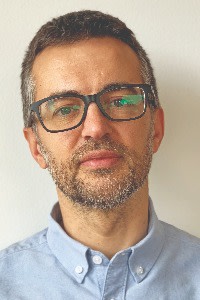
What advice would you give to a student who is thinking about taking an executive education course?
“Do it” is the simple answer. It was a great opportunity and I am very satisfied with the outcome and what I brought home in my backpack of skills. It was a formative experience. Sometimes you get stuck in your everyday routine and you conform to a certain way of seeing things. But learning and the chance to speak with other people allows you to broaden your horizons. I’ve been working for my company for 15 years, so it was very interesting to get a new perspective on things I thought I was very knowledgeable about. The course also helped to renew my passion for my job, as well as adapt to the internal and external environment. The company is growing and the sector we work in is changing and becoming more challenging, so these tools are great for my experience and the value I bring to the company.
Annie Boschetti
American. Finance and accounting for the non-financial professional, Excellence in Executive Leadership programme, Rotman School of Management, Ontario, February 2021. Chief people officer, Snomed International, US
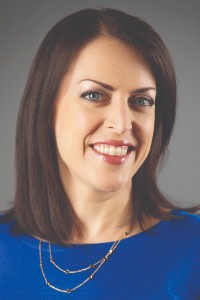
How has the course changed your everyday work?
I have a much deeper appreciation for what finance does. It is a bit like when someone gets a view into all of the legal issues I have to navigate and they say, “Gosh, I would not want your job”. It is not that I would not want their jobs, but I am appreciative of all of the nuance finance colleagues have to apply. The course was really illuminating around some of the nomenclature that I believed I understood but maybe did not fully. It has deepened my understanding of, and ability to participate in, the finance or long-term planning discussions that relate to any budget impacts we are looking at. I think my chief financial officer appreciates it as well.
Cora Sutton-Smith
Irish. Diploma in corporate governance, UCD Smurfit Graduate Business School, 2021. Director, CS Consulting Group, Ireland
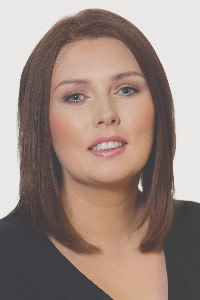
How has the pandemic affected your studies?
Last September, when we started, we went to college in person and they had a brilliant set-up — with screens between us and we wore masks during class. That was great because we got to meet each other. When more restrictions came in, the class moved to Zoom and that has been good, too. There has not been a lack of engagement: the class still asks questions throughout the lectures — for example, putting their hands up digitally and giving insights from their own experience. The lecturers are organised, too. We take breaks and they put us into breakout rooms to discuss a topic with three or four people and then come back to the main group. So they have set it up well. It also means you are not travelling to the college two days a week, so you can work up to when the lecture starts. I have two small children as well, so not having to travel has been very handy.
Christian Baessler
German. International Management Programme, Hult Ashridge, UK, April 2020. Head of sales OE/business development, Continental, Germany
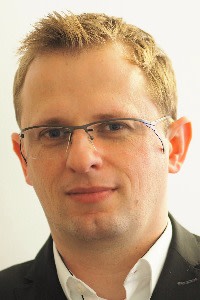
How have you applied what you learnt to your work?
One of the key things was health. As part of the course, we monitored our heart rate variance for four days and nights. A fitness coach at Hult Ashridge then provided us with an individual analysis of the results, which gave me a good overview of physical activity, sleep, stress and recovery. I was not aware that simple things like having a glass of red wine will make your body suffer throughout the night. What it boils down to is that if you are not fit or not taking care of your health, that will affect your performance and your wellbeing. This was not only helpful for me in business — it has affected my whole lifestyle. Otherwise, I liked the executive coaching session. We only had one, but I became much clearer about what I want and what I do not want from my career and how to express this.
Karin van der Wekke
Dutch. Leadership acceleration programme, Vlerick Business School, Netherlands, 2020. Team lead, security strategy and policy, KPN, Netherlands
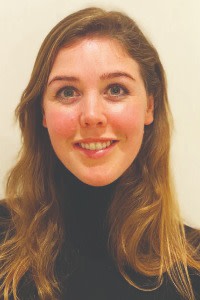
What is the most important lesson you learnt on the course?
One of the most important lessons for me was that it is valuable to build on each other’s ideas, rather than only promoting your own. As a leader, you need to trust the people around you, to let them take the stage and support their ideas. As part of the course we did some improvisation in a theatre. We were encouraged to act intuitively. In practice, this meant not overthinking situations, but just acting instead. If someone needs help during a meeting, step up. When there are tensions in the team, speak up and address the things you see happening. This showed me that it can be very powerful to be vulnerable in a professional setting. By doing this, you create a safe space for other people to open up and speak their truth, too.
Comments